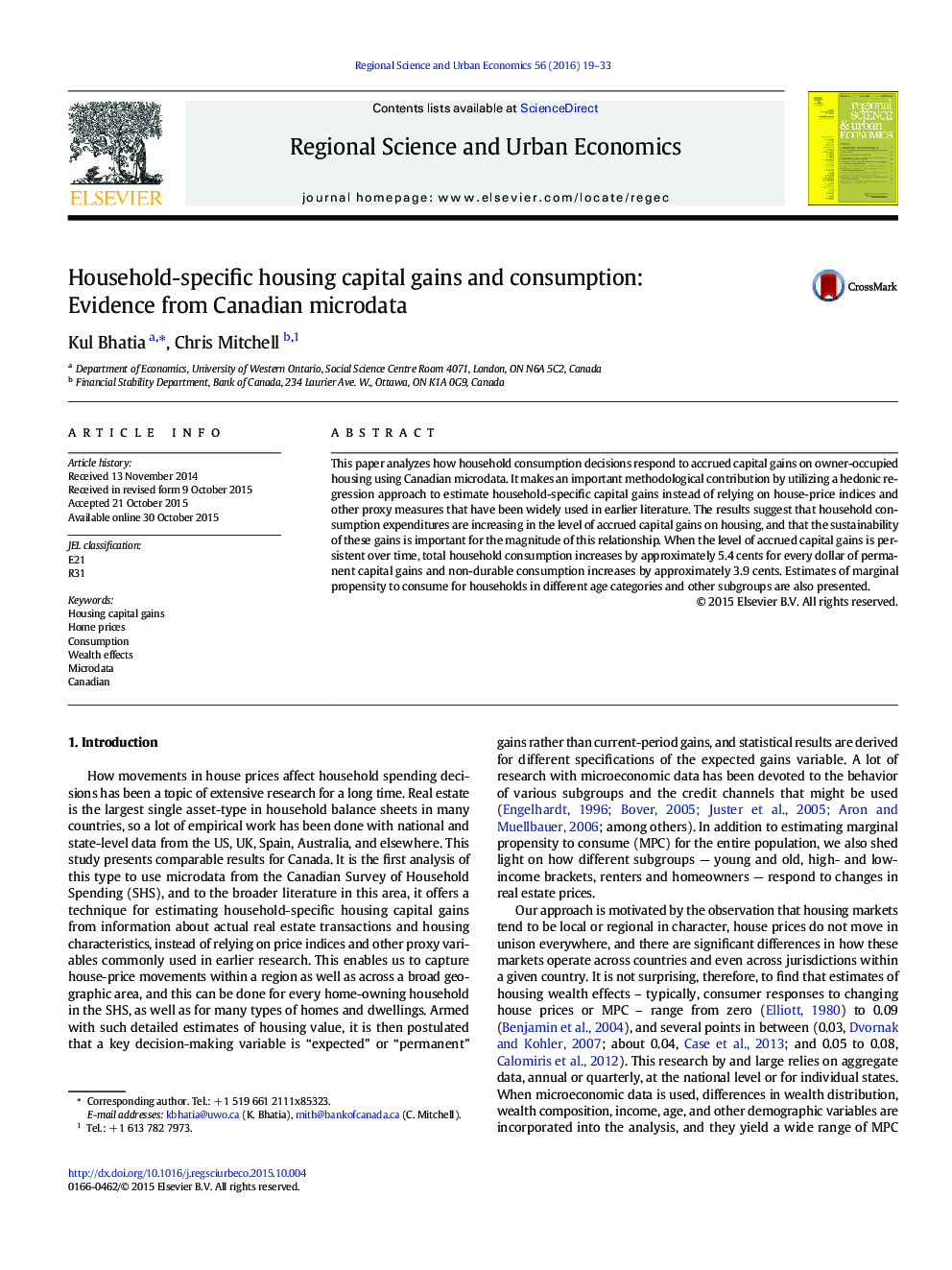| Article ID | Journal | Published Year | Pages | File Type |
|---|---|---|---|---|
| 980581 | Regional Science and Urban Economics | 2016 | 15 Pages |
•First study to estimate housing capital gains for each household.•Innovative use of the hedonic regression approach.•Examines the role of “permanent” gains.•Wealth effects for the full sample and subgroups.•Large, multi-year survey data set.
This paper analyzes how household consumption decisions respond to accrued capital gains on owner-occupied housing using Canadian microdata. It makes an important methodological contribution by utilizing a hedonic regression approach to estimate household-specific capital gains instead of relying on house-price indices and other proxy measures that have been widely used in earlier literature. The results suggest that household consumption expenditures are increasing in the level of accrued capital gains on housing, and that the sustainability of these gains is important for the magnitude of this relationship. When the level of accrued capital gains is persistent over time, total household consumption increases by approximately 5.4 cents for every dollar of permanent capital gains and non-durable consumption increases by approximately 3.9 cents. Estimates of marginal propensity to consume for households in different age categories and other subgroups are also presented.
